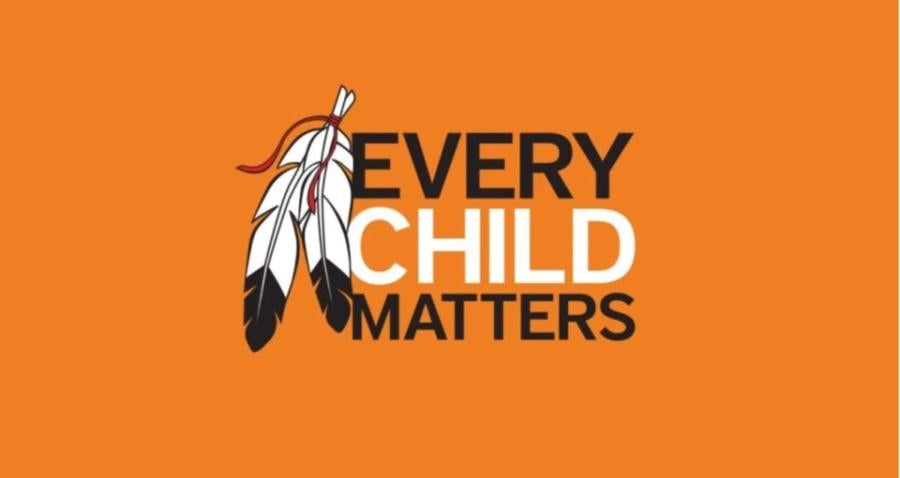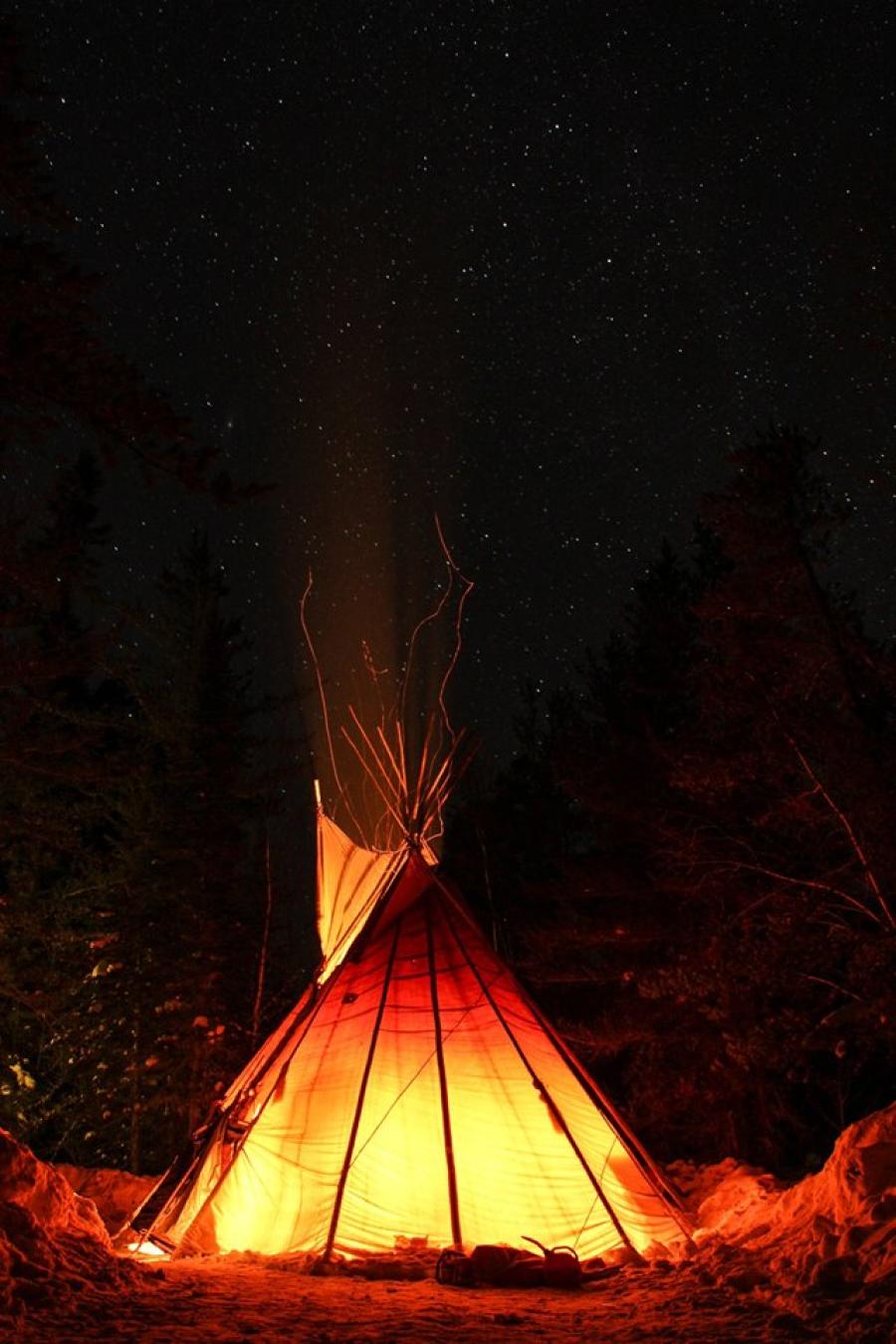I am from the Okanagan, a part of British Columbia that is much like most of California in climate—very dry and hot. Around my birthplace are two rock mountain ranges: the Cascades on one side and the Selkirrks on the other. The river is the Columbia. It is the main river that flows through our lands, and there are four tributaries: the Kettle, the Okanagan/Smikanean, the San Poil, and the Methow.
My mother was a river Indian. She is from Kettle Falls, which is the main confluence of the Columbia River near Inchelieum. The Kettle River people are in charge of the fisheries in all of the northern parts of the Columbia River system in our territories. The Arrow Lakes and the tributaries from the Kettle flow south through the Columbia Basin. My great-grandmother’s husband was a salmon chief and caretaker of the river in the north.
My father’s people are mountain people. They occupied the northern part of British Columbia, known as the Okanagan Valley. My father’s people were hunters—the people in the Okanagan who don’t live in the river basin. They were always a separate culture from the river people. My name is passed on from my father’s side of the family and is my great-grandmother’s name. I am associated with my father’s side, but I have a right and a responsibility to the river through my mother’s birth and my family education.
So that is who I am and where I take my identity from. I know the mountains, and, by birth, the river is my responsibility: They are part of me. I cannot be separated from my place or my land.
When I introduce myself to my own people in my own language, I describe these things because it tells them what my responsibilities are and what my goal is. It tells them what my connection is, how I need to conduct myself, what I need to carry with me, what I project, what I teach and what I think about, what I must do and what I can’t do. The way we talk about ourselves as Okanagan people is difficult to replicate in English. Our word for people, for humanity, for human beings, is difficult to say without talking about connection to the land. When we say the Okanagan word for ourselves, we are actually saying, “the ones who are dream and land together.” That is our original identity. Before anything else, we are the living, dreaming Earth pieces. It’s a second identification that means human; we identify ourselves as separate from other things on the land. The word “Okanagan” comes from a whole understanding of what we are as human beings. We can identify ourselves through that word. In our interaction, in our prayer, we identify ourselves as human as well, different from birds and trees and animals. When we say that, there is a first part of the word and an “s”; whenever you put an “s” in front of any word, you turn it into a physical thing, a noun. The first part of a word refers to a physical realm.
The second part of the word refers to the dream or to the dream state. “Dream” is the closest word that approximates the Okanagan. But our word doesn’t precisely mean dream. It actually means “the unseen part of our existence as human beings.” It may be the mind or the spirit or the intellect. So that second part of the word adds the perspective that we are mind as well as matter. We are dream, memory, and imagination.
The third part of the word means that if you take a number of strands of hair or twine, place them together, and then rub your hands and bind them together, they become one strand. You use this thought when you make a rope and when you make twine, thread, and homemade baskets, and when you weave the threads to make the coiled basket. That third part of the word refers to us being tied into and part of everything else. It refers to the dream parts of ourselves forming our community, and it implies what our relationships are.
The Okanagan perception of the self and that of the dominant culture has to do with the “us” that is place: the capacity to know we are everything that surrounds us; to experience our humanness in relation to all else and, in consequence, to know how we affect the world around us. The Okanagan word for “our place on the land” and “our language” is the same. We think of our language as the language of the land. This means that the land has taught us our language. The way we survived is to speak the language that the land offered us as its teachings. To know all the plants, animals, seasons, and geography is to construct language for them.
We also refer to the land and our bodies with the same root syllable. This means that the flesh that is our body is pieces of the land come to us through the things that the land is. The soil, the water, the air, and all the other life forms contributed parts to be our flesh. We are our land/place. Not to know and to celebrate this is to be without language and without land. It is to be “dis-placed.”
The Okanagan teach that anything displaced from all that it requires to survive in health will eventually perish. Unless place can be relearned, all other life forms will face displacement and then ruin. As Okanagan, our most essential responsibility is to bond our whole individual and communal selves to the land. Many of our ceremonies have been constructed for this. We join with the larger self and with the land, and rejoice in all that we are. We are this one part of the Earth. Without this self and this bond, we are not human.
Land bonding is not possible in the kind of economy surrounding us, because land must be seen as real estate to be “used” and parted with if necessary. I see the separation is accelerated by the concept that “wilderness” needs to be tamed by “development” and that this is used to justify displacement of peoples and unwanted species. I know what it feels like to be an endangered species on my land, to see the land dying with us. It is my body that is being torn, deforested, and poisoned by “development.” Every fish, plant, insect, bird, and animal that disappears is part of me dying. I know all their names, and I touch them with my spirit. I feel it every day, as my grandmother and my father did.
Jeanette Armstrong is the direct of the En’owkin Center, an indigenous cultural, educational, and creative arts institution in Penticton, British Columbia, which offers university and college transfer diplomas and certificate programs. The essay from which this article is adapted was published in Paradigm Wars: Indigenous Peoples’ Resistance to Economic Globalization, a special report of the International Forum on Globalization (www.ifg.org), edited by Jerry Mander and Cultural Survival Program Council member Victoria Tauli-Corpuz.



